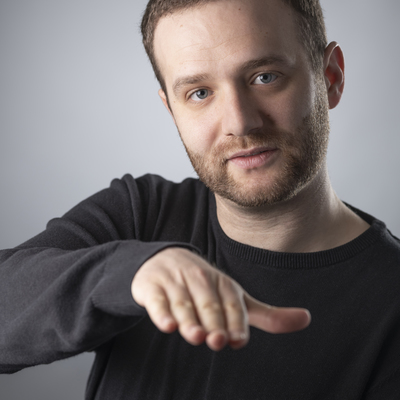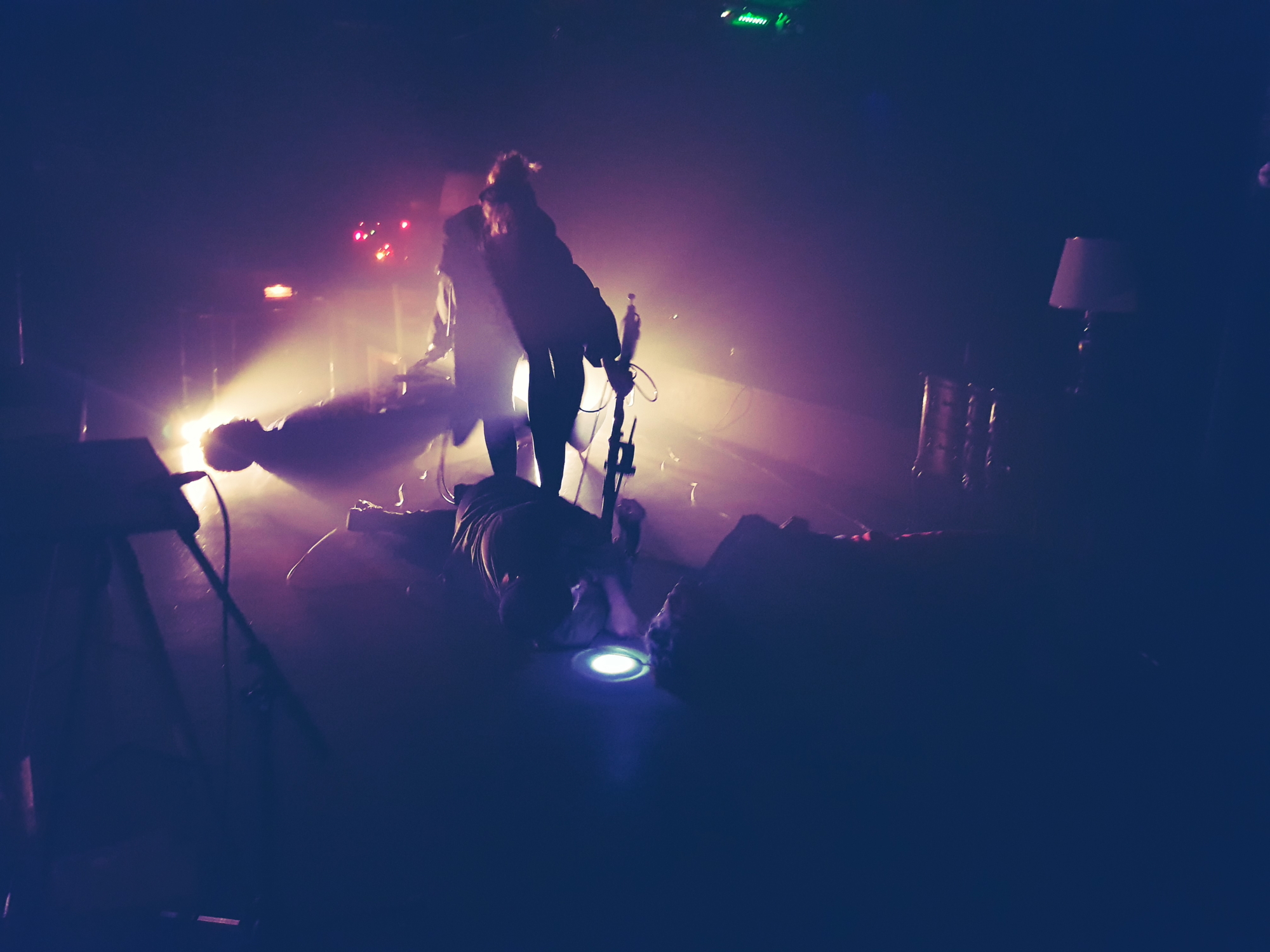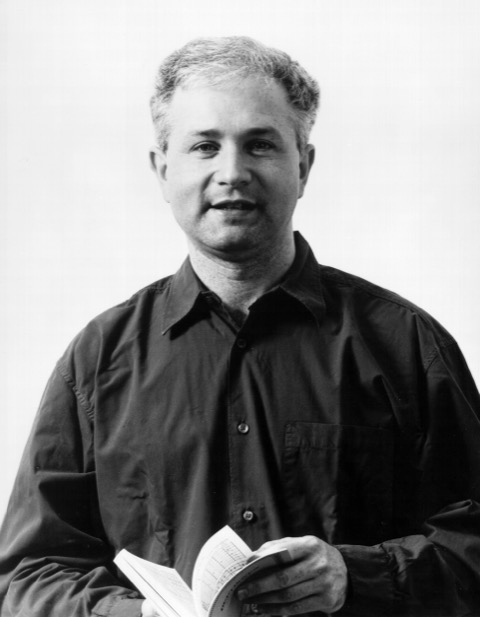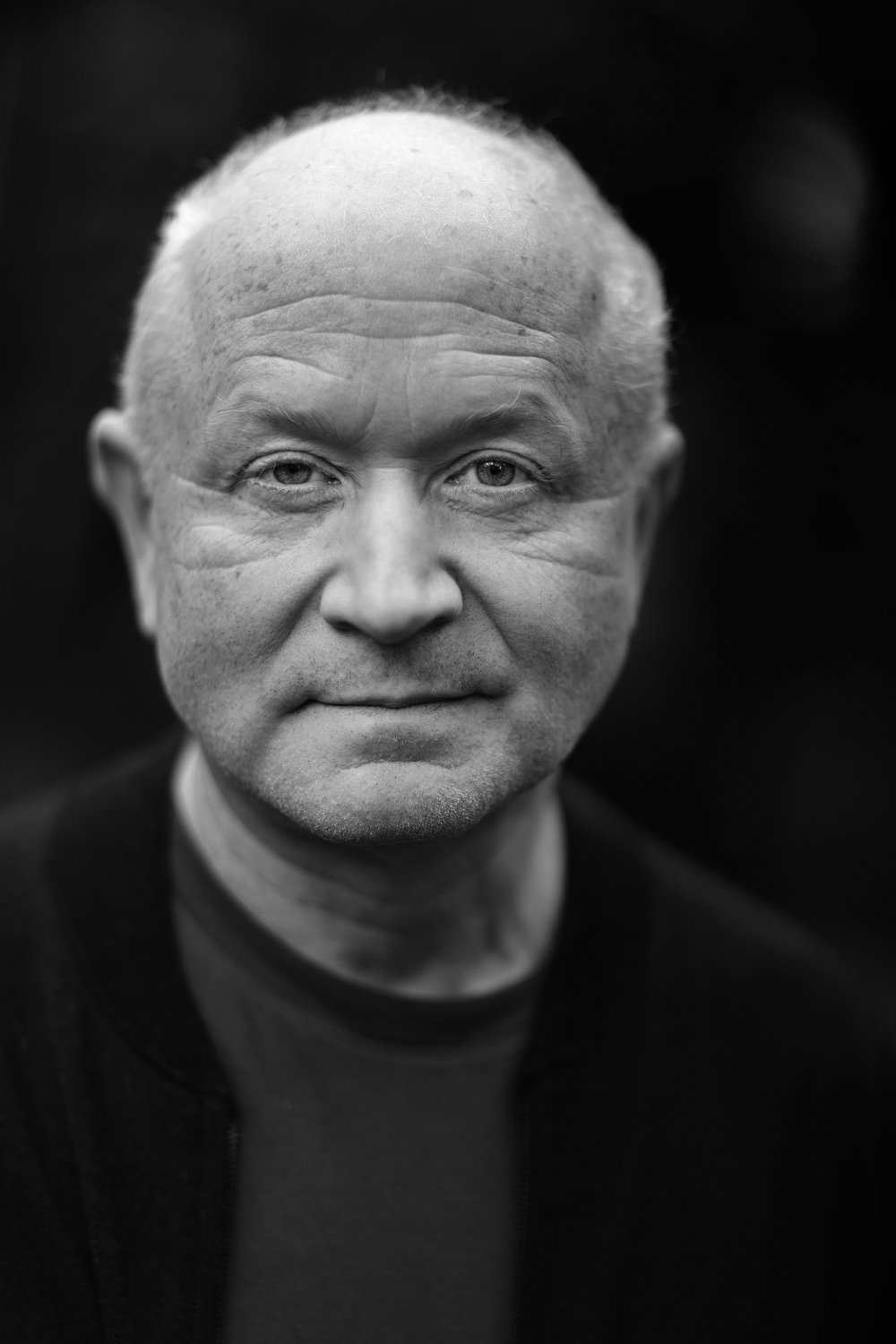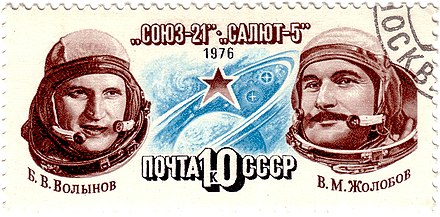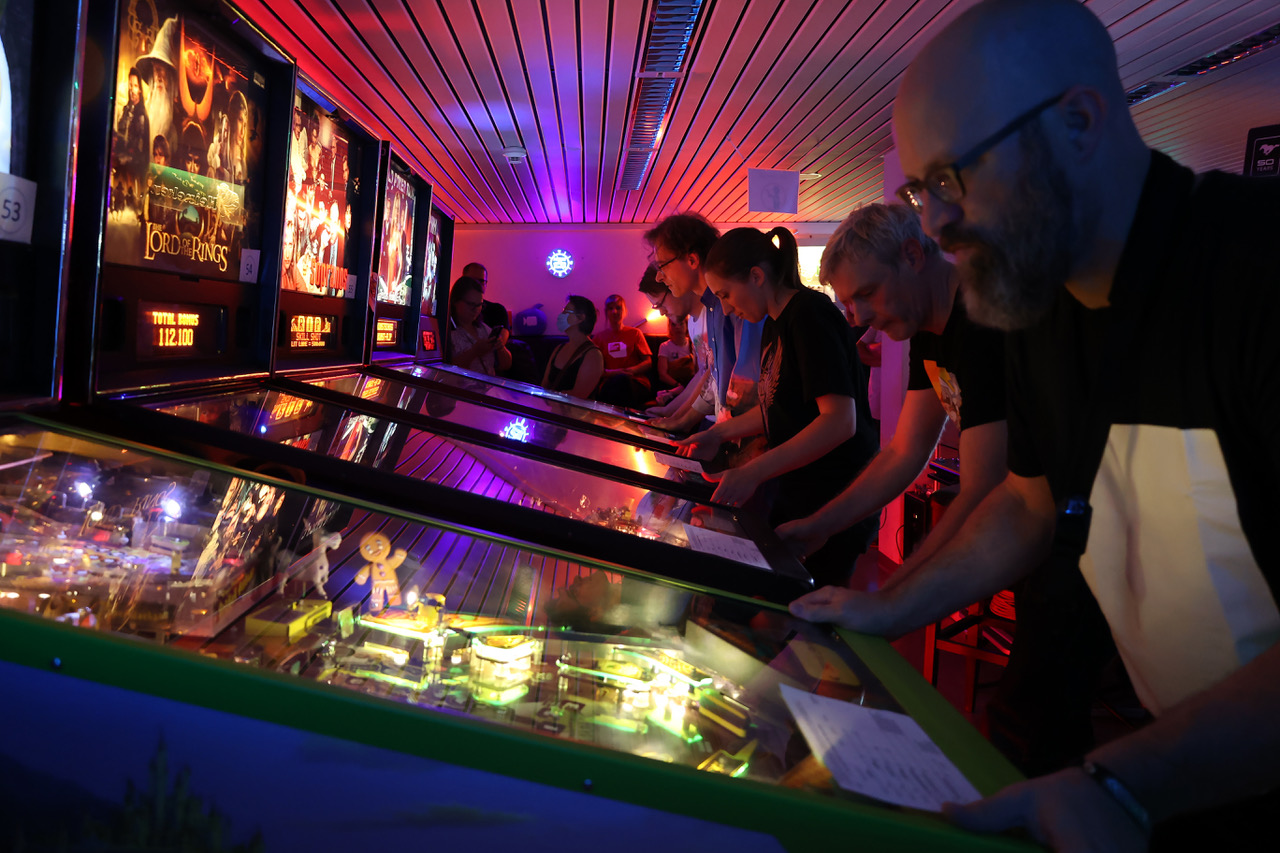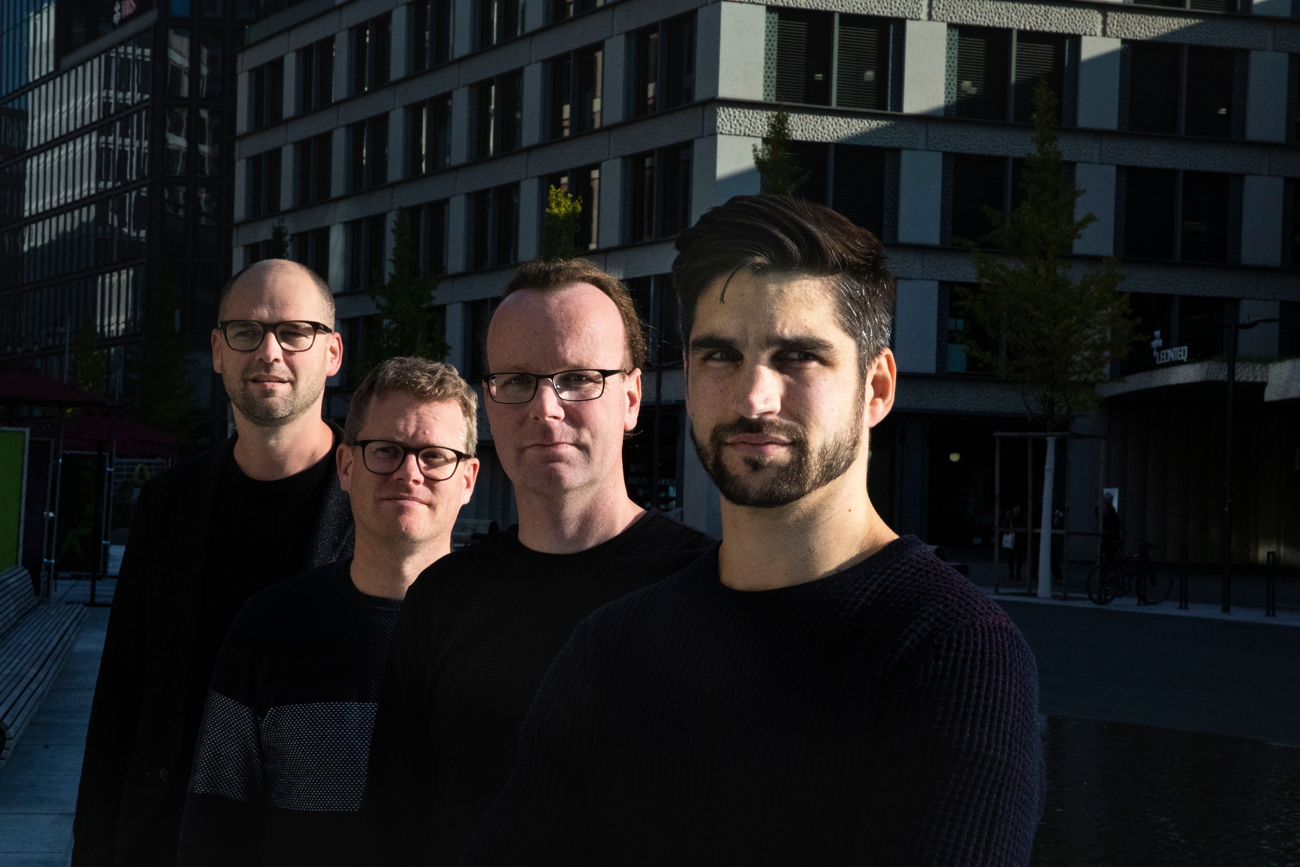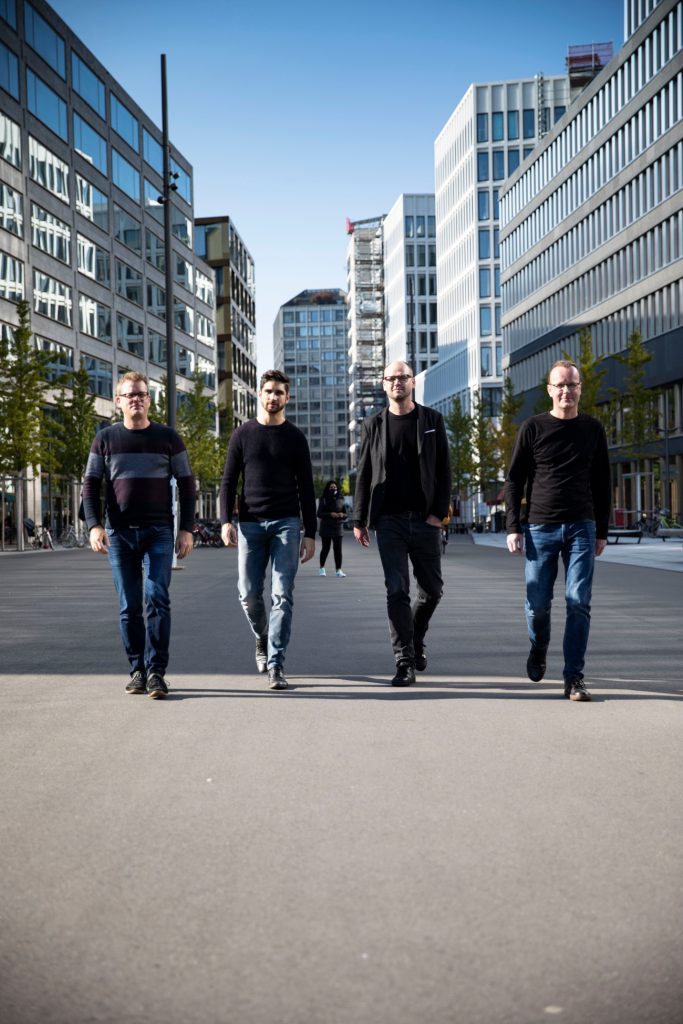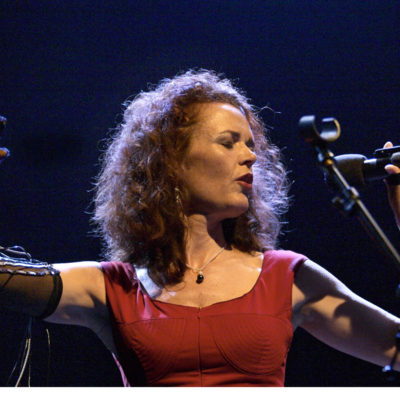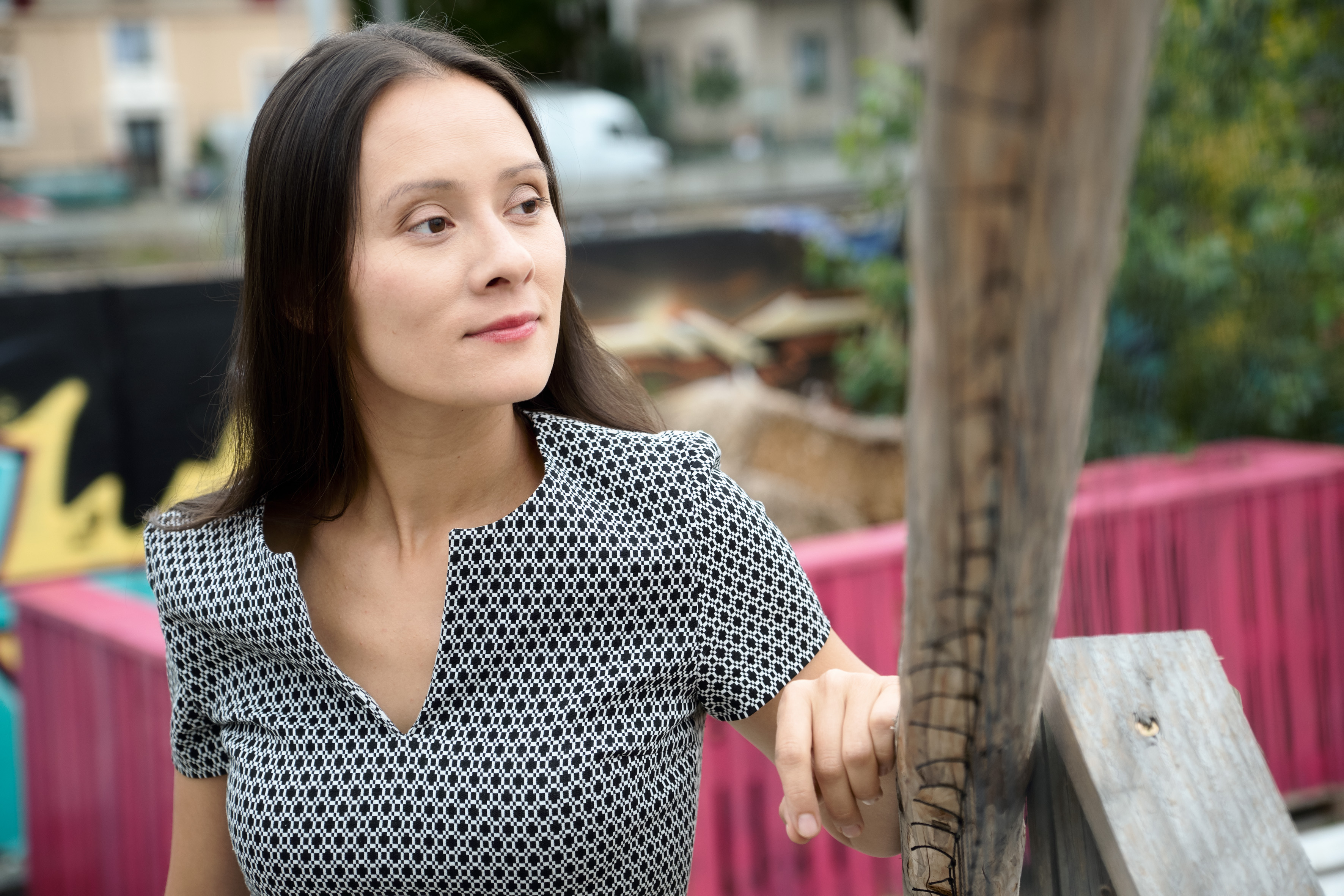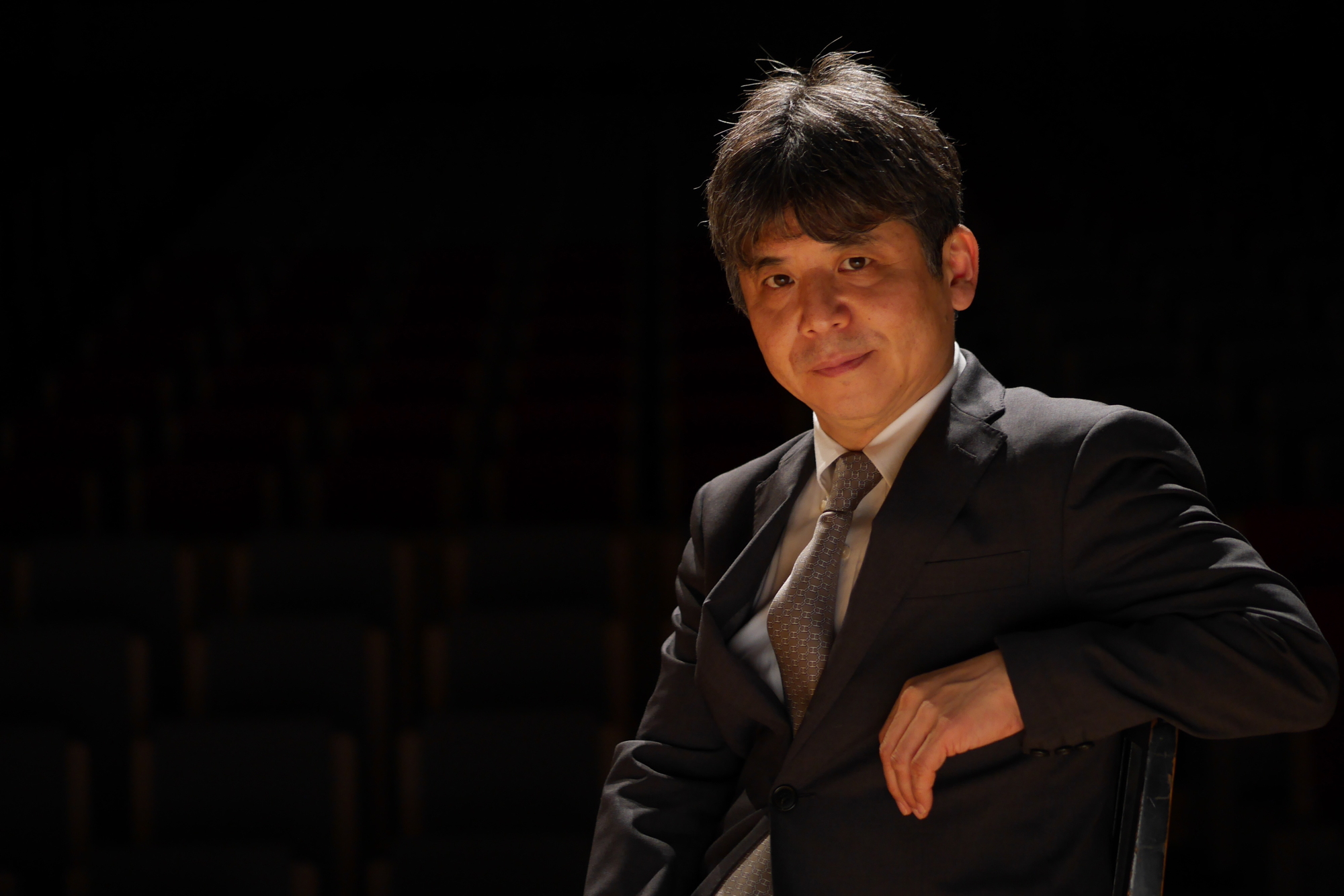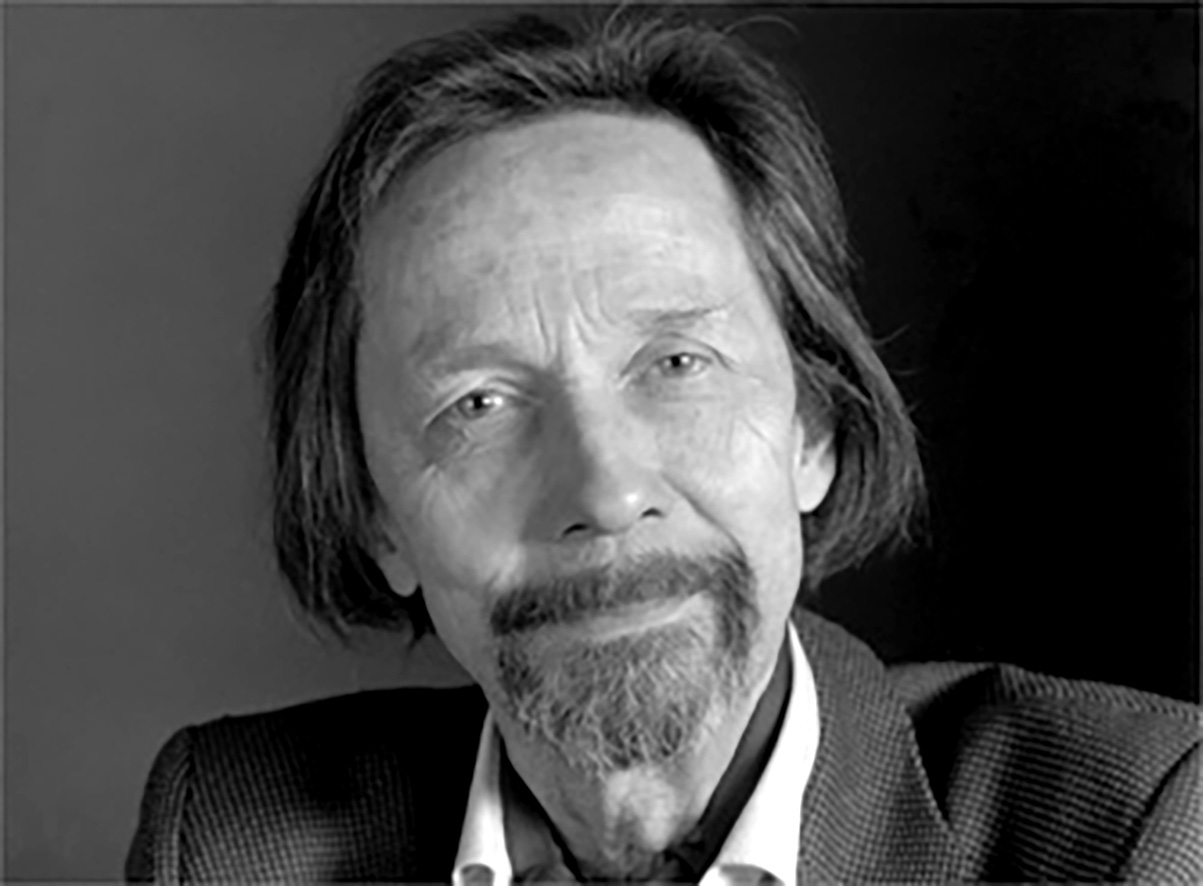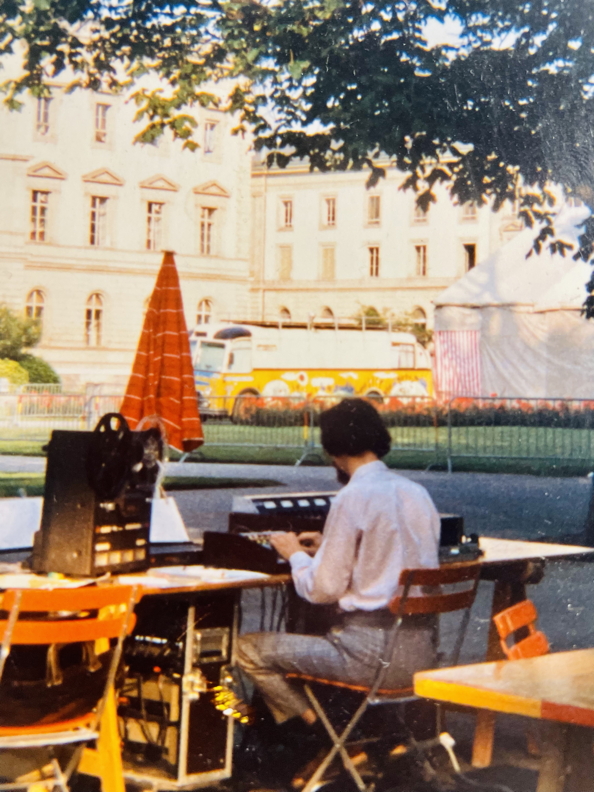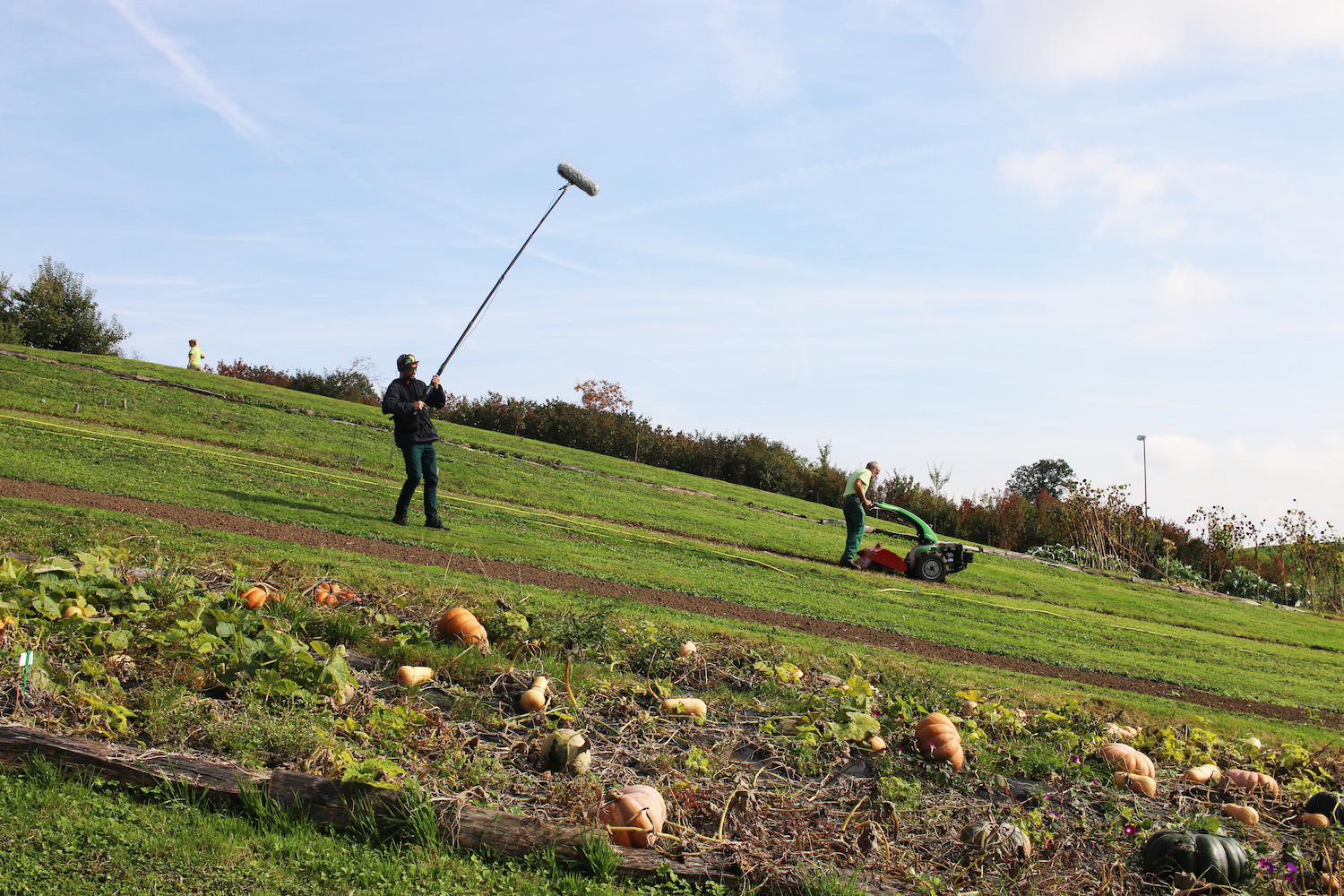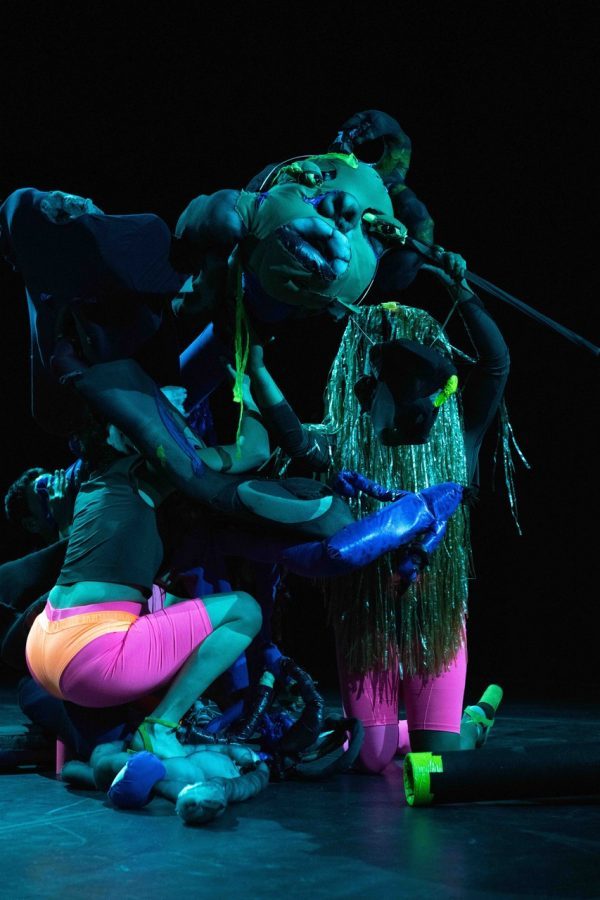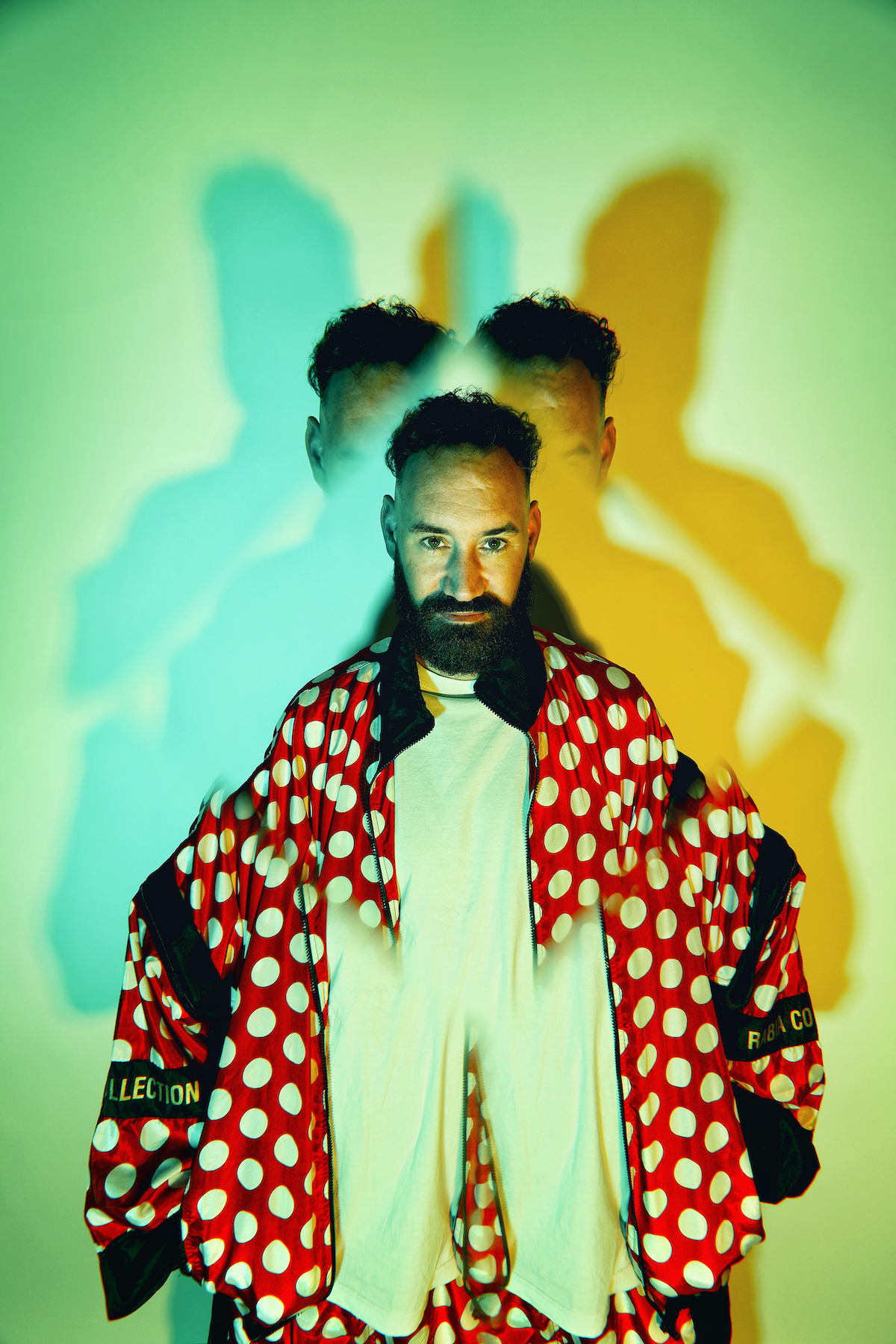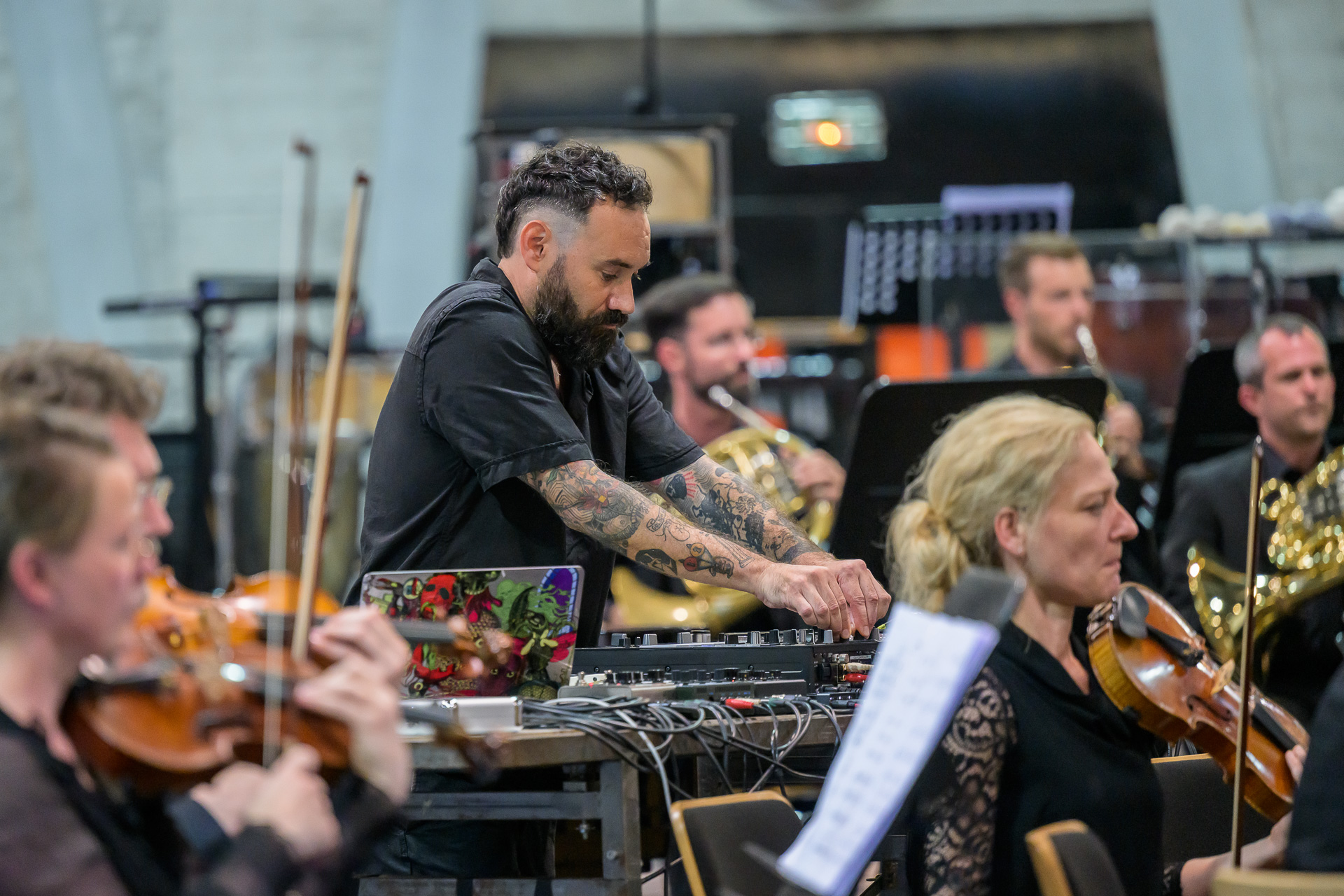Roman Hošek: Neuerdings – Faszination Sound @ launch srf video series
Neuerdings – a video series in collaboration with SRF 3 Sounds! and SRF 2 Kultur presents experimental music creation up close. In four portraits, it traces the creative paths in the sound labs of Noémi Büchi, Julian Sartorius, Martina Berther and Janiv Oron. Roman Hošek introduces the series and the portrayed artists for the launch at Bad Bonn Kilbi festival on June 2, 2023.
Roman Hošek
Büchi, Sartorius, Berther and Oron are all seasoned musical personalities and some already won important prizes and can regularly be encountered in renowned projects. They all pursue a radically individual creative path – in which success plays a subordinate role. For them, it’s all about doing. The four musicians talk about their uncompromising creative will in a new documentary series.
Sound is matter
Noémi Büchi takes everyday objects such as paper or screws and extracts sounds from them in order to make music. For example, she tears the paper, records the sound with a microphone and manipulates it with effects and computer software.
In this way, everything becomes an instrument for Noémi Büchi. She used to play classical piano. Today it is keyboards, tone controls and computer pads that the Zurich-based artist operates and with which she controls her self-generated sound sources. The result is a sound collage that invites the audience on a breathtaking journey and encourages them to move.
Because moving something is important for Noémi Büchi. Her symphonic music is not a commentary and carries no message, as what matters to her is making sound visible and tangible. She notices this especially live, when sound waves become physical.
Video-Portrait Noémi Büchi: Neuerdings – Faszination Sound, in house-production SRG/SSR
Sound is craft
Julian Sartorius likes to move around outdoors or, for example, through factory halls, drumming on objects with his drum sticks. The wide range of sounds he is able to extract from seemingly ordinary objects, such as lids, pipes or wires, and how he manages to produce attractive-sounding beats is amazing.
The Bernese drummer is strongly inspired by electronic music, but creates his sounds exclusively with his hands and on acoustic instruments and objects. What’s appealing to him is to create almost artificial sounds with something natural.
Another facet of Sartorius’ artistic work is the production of beats, and here too he goes his own peculiar way. For example, he likes to work with an old-fashioned cassette player, which – compared to a digital sequencer programme – limits him in terms of technical possibilities, but forces him to make immediate artistic decisions.
Video-Portrait Julian Sartorius: Neuerdings – Faszination Sound, in house-production SRG/SSR
Sound is quest
Martina Berther gets much more out of her electric bass than just low frequency notes. Violent storms or vast soundscapes open up before the mind’s eye when she gets her instrument vibrating with her effect devices and preparation tools – such as steel wool, sanding block, bottleneck or violin bow.
The solo performer from Graubünden says she makes experimental music because she can thereby surprise herself and has great freedom. At the same time, dealing with this freedom is not always easy. A contradiction? No. It is this tension – between success and failure – that is the main appeal for Martina Berther.
Just like a solo performance, the search for sounds can become a balancing act, as there are many uncertainties and even doubts. For Martina Berther, there must be an intention behind every sound before she includes it in her repertoire. No room for randomness.
Video-Portrait Martina Berther: Neuerdings – Faszination Sound, in house-production SRG/SSR
Sound is reaction
Janiv Oron is like an inventor in a music laboratory. When the former DJ creates his sounds, the record player is often still central, but he expands it in experimental ways with other sources, such as a rotating loudspeakers or marbles track.
The sound performer from Basel not only directs his sound machines, but also reacts to random impulses that he receives back, seeing this as a “source of uncertainty” and he consciously engages in it to include improvisation into his work. Oron does not turn away from the digital world, but he feels a stronger fascination with analogue and physically functioning sound sources. These may offer less possibilities in comparison, but they are haptic and can be operated by hand instead of on a screen.
Video-Portrait Janiv Oron: Neuerdings – Faszination Sound, in house-production SRG/SSR
“Neuerdings” – Faszination Sound
“Neuerdings” is a video portrait series about these four Swiss musicians. They are pioneers of tomorrow’s music, whose work is between contemporary electroacoustics, experimental music and pop, and thus also finds international acclaim.
Switzerland is particularly strong in these intermediate areas, not least because of the numerous study degree programmes focusing on transdisciplinary and progressive musical practice. On the other hand, more and more events and growing interest among the public are also slowly but surely emerging.
The portrait series, a collaboration between SRF 3 Sounds! and SRF 2 Kultur, offers a glimpse into to the sound tinkering rooms of the four musicians, who are all breaking new ground with their work and are therefore difficult to place stylistically. In the videos, they talk about their radical approaches and describe the inaccessible and innovative potential of new sounds.
Roman Hošek
The launch took place at the festival: Bad Bonn Kilbi, friday 2.6.2023
broadcasts SRF Kultur:
Musik unserer Zeit, 7.6.2023, 20h: “Neuerdings”: Schweizer Musik mit Pioniergeist, author Roman Hošek
in: MusikMagazin, 3./4.6.2023: Swisscorner, Vier Schweizer Soundartists (ab Min 46:59), author Lea Hagmann
srf online-Text: Sie schrauben am Sound der Zukunft, author: Claudio Landolt
broadcast SRF 3:
Sounds!, 7.6.2023, 20h: Neuerdings: Schweizer Musik mit Pioniergeist, author Claudio Landolt
Neuerdings on playsuisse
Neo-profiles:
Noémi Büchi, Julian Sartorius, Martina Berther, Janiv Oron


